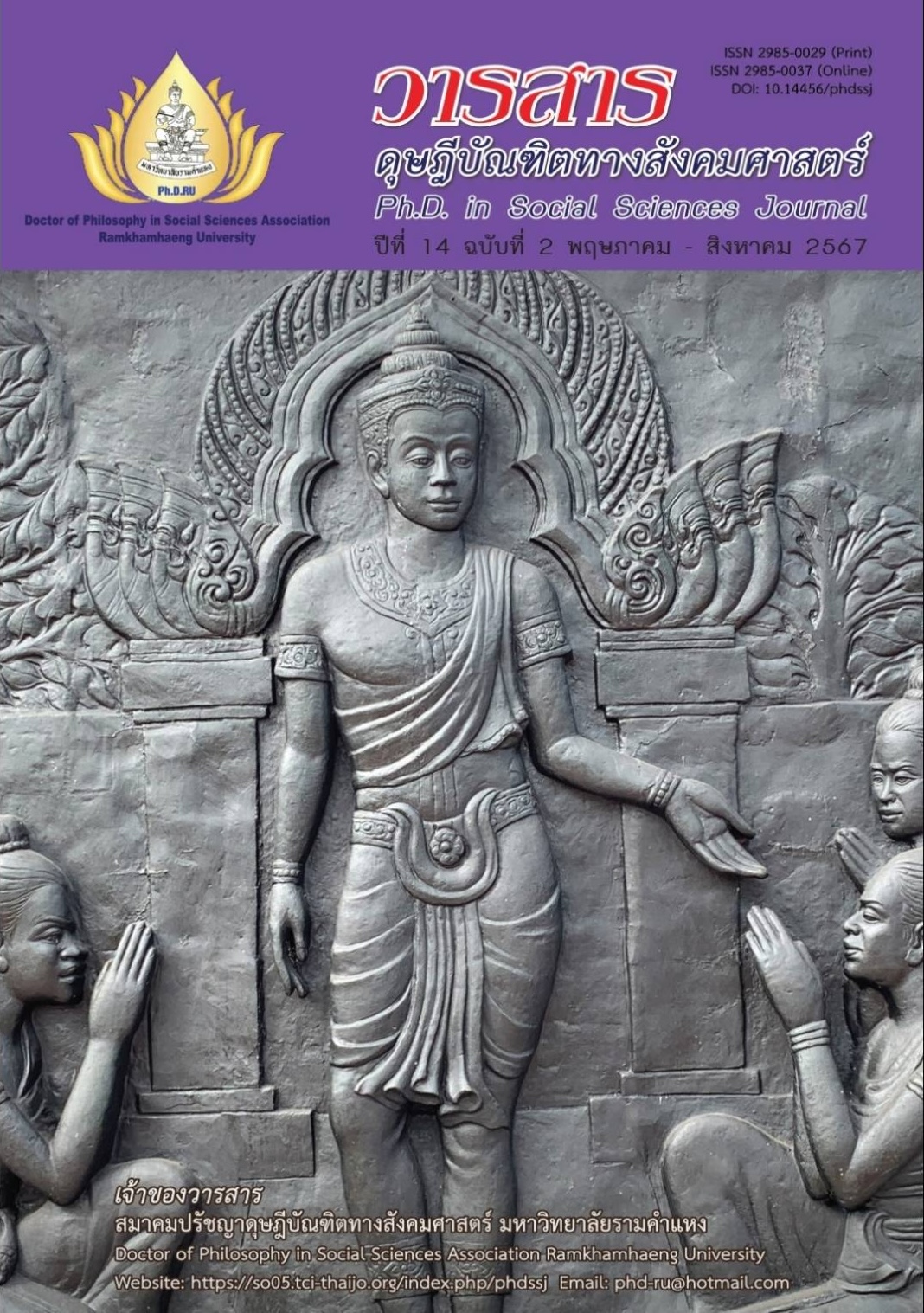Legal Problems Regarding the Pesticide Business According to the Hazardous Substance Act, B.E. 2535 (1992)
Main Article Content
Abstract
This research article aims to study the legal problems regarding the control of pesticide business operators in Thailand, the concepts and theories, compares the laws in Thailand and abroad, analyzes the problems related to the control of pesticide business operators in Thailand; and proposes guidelines for an amendment and development of the laws related to the control of pesticide business operators in Thailand. The qualitative research approach was employed. Data were collected using the techniques of documentary research, in-depth interview, and focus group discussions. Data were analyzed using the techniques of content analysis and comparative analysis.
Findings are as follows: The Hazardous Substances Act B.E. 2535, which is a central law that controls all types of hazardous substances, has resulted in problems with the structure and enforcement of the Hazardous Substances Act B.E. 2535, problem in an extension of licenses, problem of fake, substandard, and deteriorated agricultural hazardous substances and problem of pesticide advertising and labeling. Therefore, a pesticide law should be enacted that has a structure and scope of enforcement that focuses directly on agricultural hazardous substances, separate from the Hazardous Substances Act B.E. 2535, stipulate that those who wish to renew their licenses must report the number of hazardous substances they possess, stipulate that show an expiration date that is untrue, should be considered counterfeit hazardous substances, and stipulate that there should be a law and a primary agency responsible for overseeing agricultural chemical advertising and labeling. There should also be a draft of the Pesticides Act B.E....
Article Details

This work is licensed under a Creative Commons Attribution-NonCommercial-NoDerivatives 4.0 International License.
Academic articles, research articles, and book reviews in the Ph.D. in Social Sciences Journal are author’s opinions, and not the publisher’s, and is not the responsibility of the Ph.D. in Social Sciences Journal Philosophy Association, Ramkhamhaeng University. (In the case that research is done on human, the researcher has to be trained in Ethics for Doing Research on Human Training and has to produce the evidence of the training).
References
Bangkok Metropolitan Administration, Health Department, Food Sanitation Division. (2021). Summary of the academic conference on pesticide warnings in the year 2020 moving forward, create a safe agriculture and food system on November 25-26, 2020 at the Richmond Hotel, Rattanathibet Road, Muang, Nonthaburi Province. Retrieved from http://foodsanitation.bangkok.go.th/assets/uploads/activity/20201218_48927.pdf [In Thai]
Department of Agriculture, Bureau of Plant and Agricultural Materials Control. (2010). Knowledge for agricultural hazardous material sales supervisors. Author. [In Thai]
Food and Agriculture Organization of the United Nations. (2014). The international code of conduct on pesticide management. Retrieved from https://www.fao.org/3/I3604E/i3604e.pdf
Food and Agriculture Organization of the United Nations. (2017). Regulation on Pesticide Administration. Retrieved from https://www.fao.org/faolex/results/details/en/c/LEX-FAOC025176
Food and Agriculture Organization of the United Nations. (2018). Pesticides Act 1974 (No. 149 of 1974). Retrieved from https://faolex.fao.org/docs/pdf/mal13354.pdf
Japanese Law Translation. (2018). Agricultural Chemicals Regulation Act (Act No. 82 of 1948). Retrieved from https://www.japaneselawtranslation.go.jp/en/laws/view/3507/en
Technology Chaoban. (2021). Why does the whole world use pesticides?. Retrieved from https://www.technologychaoban.com/bullet-news-today/article_73392 [In Thai]
Thai Civil Rights and Investigative Journalism. (2021). 11 years, Thailand imported agricultural chemicals 1.66 million tons, 2.46 billion baht, an average of 4,000 illnesses per year. Retrieved from https://www.tcijthai.com/news/2019/10/scoop/9456 [In Thai]
Thai-PAN. (2021a). Bad news, at the end of 2020, Thai-PAN found 58.7% of fruits and vegetables found pesticide residues exceeding the standard. Retrieved from http://thaipan.org/highlights/2283 [In Thai]
Thai-PAN. (2021b). Policies and laws related to pesticides. Retrieved from https://thaipan.org/data/474 [In Thai]
ThaiPublica. (2021). When the government sector-department of agriculture-hazardous substances committee-farmers encourage “vegetables and fruits are poisonous.” Retrieved from https://thaipublica.org/2014/08/contaminated-fruits-and-vegetables [In Thai]
Thairath Online. (2021). Unraveling the knot of agricultural chemicals. Retrieved from https://www.thairath.co.th/money/economics/thailand_econ/1372853 [In Thai]
United States Environmental Protection Agency. (2024). The Federal Insecticide, Fungicide, and Rodenticide Act. Retrieved from https://www.epa.gov/enforcement/federal-insecticide-fungicide-and-rodenticide-act-fifra-and-federal-facilities


